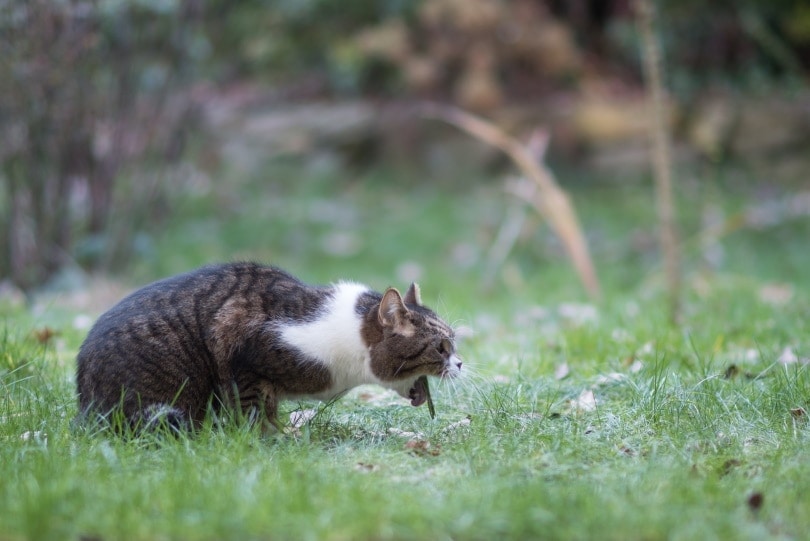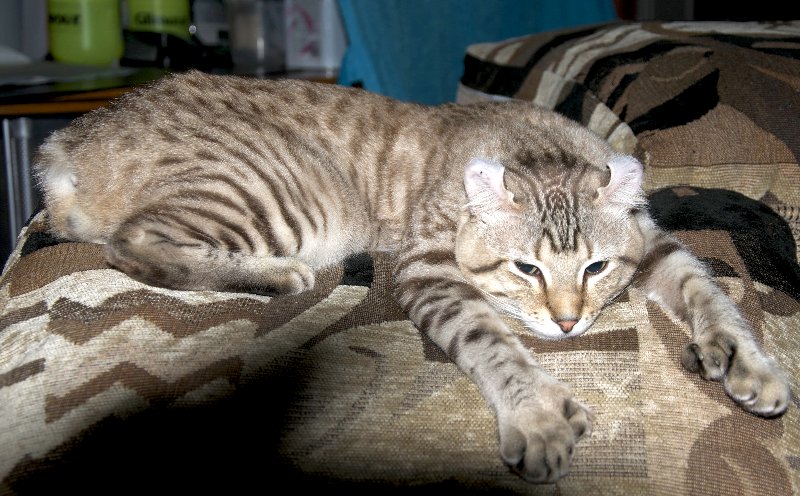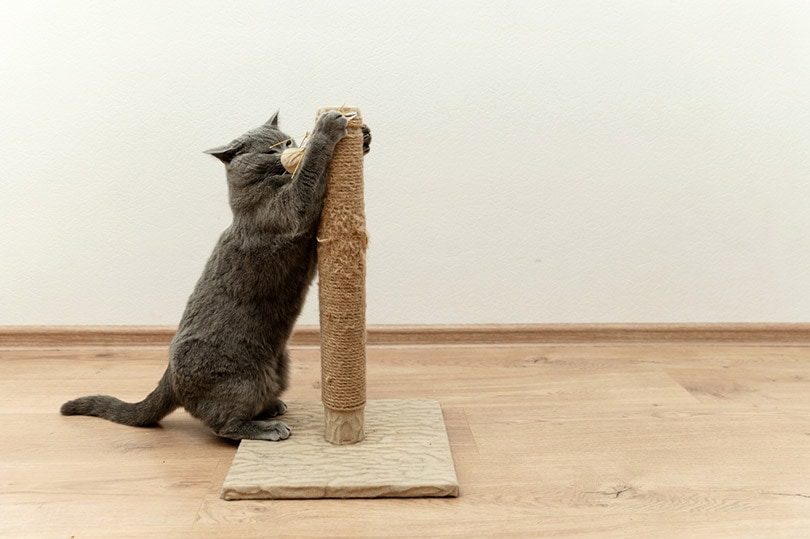Can Cats Eat Oranges? Vet Approved Safety Guide & Alternatives

Updated on

There is nothing better than a sweet glass of ice-cold orange juice on a hot day or better yet, a freshly sliced-up orange. Not only do oranges taste great, but they are also loaded with healthy vitamins. While snacking on this delicious fruit, you may notice your cat staring at you pleadingly and wonder whether it’s safe to give your feline a taste. But can cats eat oranges? Are these juicy fruits safe for your feline friend?
The short answer is no, oranges are unfortunately not safe for cats. Oranges contain sugar, which is not ideal for your furry friend, but also a lot of citric acid and other ingredients that are actually toxic to cats, like many other citrus fruits.
Let’s dig a little deeper into what you need to know about feeding oranges to your cats.
Why Shouldn’t Cats Eat Oranges?
While oranges contain vitamin C, which is wonderful for humans, cats synthesize their own vitamin C and do not need to get it from their diet, except in rare circumstances. Oranges contain sugar, which cats should avoid, as it can swiftly cause health issues for them.
Oranges and their skin also contain essential oils that are toxic to cats and ingestion of these oils can cause gastric problems, like vomiting and diarrhea, and may even cause nervous system disorders and skin irritation. Oranges and other citrus fruits like lemons also contain compounds called psoralens, a chemical that can cause photosensitivity and worsen skin damage, leading to blistering.
The ingestion of oranges can lead to citrus poisoning, a mild yet debilitating condition in cats, although it is rarely fatal. It’s important to note that both the fruit and peels are toxic to cats, and the peels may be even more so because they have a higher concentration of oils.
There are a few reports1 in literature of cats being poisoned with essential citrus oil ingredients, such as d-limonene, that is sometimes present in insecticidal pet shampoos. Some of these cases cause mild neurological signs and skin irritation, while others can be quite severe and even life-threatening. Always choose appropriate, cat-only shampoos, rather than using dog ones, and make sure they have been approved by a vet.
Signs of Citrus Poisoning in Cats

Whether your cat took a sip of your fresh glass of orange juice or ran off with a few peels, they may begin to show signs right away. These signs will vary depending on how much orange they have consumed and will be more pronounced and severe if they have eaten a fair amount or come in contact with essential oils or other concentrated citrus products.
- Nausea
- Vomiting
- Diarrhea
- Drooling
- Reduced appetite
- Listlessness
- Shaking
- Photosensitivity
- Skin irritation
- Trembling
- Loss of coordination
- Seizures
If your cat has ingested any amount of orange or displays any of these signs, it is highly recommended to get them to a vet right away. Fortunately, citrus poisoning is rarely fatal, and most cats recover fully with the right treatment.
How Can I Stop My Cats from Eating Oranges?
Luckily, you don’t need to do much to stop your cat from eating oranges or citrus in general because they generally do not enjoy the taste or smell. In fact, cats so dislike the smell that oranges are often used in cat repellent sprays! Of course, oranges or lemons can be present in some foods or drinks, and you should never give these to your cat.
There are also plenty of common cleaning sprays that contain citrus, which could potentially harm your cat. While they are unlikely to ingest these products, it’s still a good idea to avoid spraying them anywhere near your cat’s sleeping area, toys, food bowls, or litter box.
What Fruits Can Cats Eat?

Cats are obligate carnivores and in general, shouldn’t eat much fruit. Specially-made cat treats are a better option to give your feline, but many fruits are safe to give cats occasionally and some are even included in commercial cat foods. Remember that moderation is key when giving cats any kind of fruit, and these don’t really offer much in terms of nutritional benefits.
It should not exceed 5%–10% of their daily caloric intake and ideally, should be given only once or twice a week, or less. Fruits that are safe treats for felines, in moderation, include:
- Blueberries
- Strawberries
- Bananas
- Apples
- Watermelons
Final Thoughts
Cats do not require any additional vitamin C in their diet because they synthesize it themselves. So, while oranges may be a high-vitamin C snack for humans, cats do not need it, and it can even be dangerous for them. There is a possibility of citrus poisoning due to the citric acid and essential oils in oranges, and the sugar content is not ideal, either.
If you want to give your cat a treat, try specially-made cat treats or healthy, cat-safe fruits instead.
For more information on what cats can eat, check out:
Featured Image Credit: Pauline Bernfeld, Unsplash













